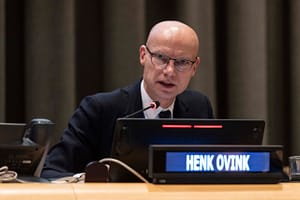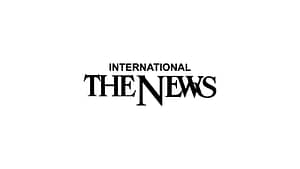Knowledge Sharing in Research Project
The WASPA project is undertaken in conjunction with the Knowledge Sharing in Research Project of the ICT-KM Program of the CGIAR, which promotes and supports the use of information and communications technology (ICT) and knowledge management (KM) to improve the effectiveness of the CGIAR System’s work on behalf of the poor in developing countries. Within this project the WASPA project is monitoring and evaluating the process and effectiveness of establishing learning alliances and implementing participatory action plans. For more information about the Knowledge Sharing in Research Project and the ICT-KM Program please go to their website www.ictkm.cgiar.org.
The project also has a blog which can be accessed here http://ictkm.wordpress.com/category/knowledge-sharing/ why not share your thoughts about the topic?
Articles about this project that includes references to the WASPA project can be found at:
www.cgiar.org/enews/september2008/story_09.html
www.egfar.org/egfar/website/new/newsletters or

The ICT-KM project team conducted interviews with the WASPA team and WASPA stakeholders in Kurunegala and documented them in interview sheets. They provided some new perspectives on the WASPA project and helped us to understand what was working and why, and what needed to change.
Ecological The Sanitation Task Force
As part of the knowledge sharing component of the WASPA project the team have been involved in the national Sanitation Task Force (STF) chaired by the Ministry of Water Supply and Drainage in Sri Lanka. The partners include the Ministry of Health, the Ministry of Education, the National Water Supply and Drainage Board, Oxfam, Practical Action, UNICEF and IOM. The project has collaborated with them on various events including an ecological sanitation workshop and a media strategy for the International Year of Sanitation. This has resulted in several newspaper articles including one on hospital waste and one on the work in Wilgoda.
Ecological Sanitation Capacity Development in Sri Lanka
Ecological Sanitation is one of the main issues addressed during the International Year of Sanitation in Sri Lanka. A series of events are planned to raise awareness on alternative sanitation approaches, to strengthen the local capacity, and to institutionalize the ecosan approach. Various events have already taken place and many more are planned. Those that have already taken place can be found here and further information on some of these can be found on the events page. For information on other events and related documents contact: c.windberg@tuhh.de
Click here for information about Ecological Sanitation events.
Integrated Approaches to Improving the Urban Environment in Asia
Practical Action
The project aims to reduce environmental threats to the health and livelihoods of urban slum dwellers, thus helping to reduce poverty in four towns in Nepal, Bangladesh and Sri Lanka. It will do this by developing and promoting an integrated approach to improving the urban environment, which works at the neighbourhood level in ways which are driven by, and improve the livelihoods of, poor women and men.
For more details please visit: http://practicalaction.org/?id=urban_environment_asia
Improving the Rural-urban Nutrient Cycle through (Peri) Urban Agriculture
The project is analyzing the viability of win-win situations for municipalities and farmers through the composting of municipal organic waste, co-composting of solid waste with night soil, and direct night soil application.
For more details please visit: www.iwmi.cgiar.org/africa/west_africa/projects/Nutrient%20cycle%20-%20Re-use%20options.htm#Background
The MUS Project
The Multiple Use Systems (MUS) project is a partnership of professionals from the productive and domestic water sectors, and from the research and implementation communities. It focuses on developing tested tools and guidelines for multiple-use water services delivery as an effective way to use water for poverty alleviation and gender equity. Activities are currently underway in rural and peri-urban areas of five major river basins and eight countries in Africa, Asia and Latin America.The project works through so-called learning alliances to develop locally-specific innovations and build capacity for scaling up. The MUS project is part of the Challenge Program on Water and Food.
For more details please visit: http://www.musproject.net/
Sustainable Urban Water Management – SWITCH Project
The SWITCH project aims to achieve a paradigm shift in urban water management to get sustainable, healthy and safe urban water systems. This paradigm shift will be realized by a consortium of 32 organisations from 13 countries under coordination of UNESCO-IHE in partnership with the European Union – DG Research.
For more details visit: www.switchurbanwater.eu/

















